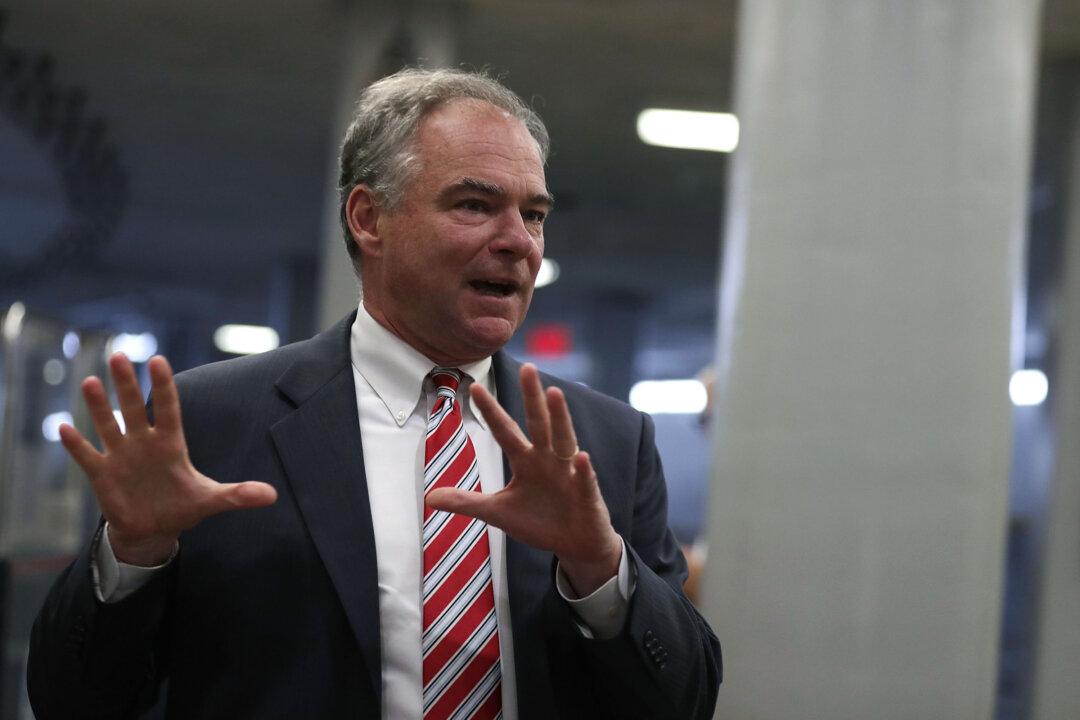RICHMOND, Va.—Tim Kaine’s selection as Hillary Clinton’s running mate could totally upend Virginia politics, and would all but certainly result in the most expensive election cycle in the state’s history next year if he becomes vice president.
Kaine was announced Friday as Clinton’s choice to be the Democratic vice presidential candidate. If he wins, it'll mean Virginia has unprecedented dual Senate and gubernatorial races next year, with yet another Senate contest the year after.
Two marquee races in 2017 would make swing-state Virginia the epicenter of national political attention, and bring with it the corresponding campaign fundraising and spending.
Bob Holsworth, a consultant and retired Virginia Commonwealth University political analyst, said combined spending could easily top $100 million.
“It will be unbelievable,” he said.
A victorious Kaine would resign his U.S. Senate seat sometime after Election Day, leaving Democratic Gov. Terry McAuliffe to pick a temporary replacement.
The race for the remainder of Kaine’s term would occur at the same time as voters pick a governor. Virginia has long held state-level elections in off years, which tends to turnout a different electorate than federal elections.
Democrats believe having a Senate race at the same time as a governor’s race will boost overall turnout and help their party’s candidates in both elections. Republicans said it’s too early to tell what the actual effect will be.
McAuliffe, a close friend of the Clintons, has pushed hard for Kaine to be the vice-presidential pick, and is also heavily invested in helping Lt. Gov. Ralph Northam win the 2017 gubernatorial contest. Governors cannot seek consecutive terms in Virginia.
McAuliffe is particularly interested in having a Democrat in the Executive Mansion to help shape redistricting efforts in 2021. The governor has long decried what he has called unfairly gerrymandered district in Virginia that he said lessens the influence of moderates in both parties.
McAuliffe declined to say whom he would pick to replace Kaine, but said having a minority or female candidate represent the state is a significant consideration.
“I want a diverse congressional delegation, no question in my mind,” McAuliffe said.
Rep. Bobby Scott, the first African-American elected to Congress from Virginia since Reconstruction, would be an obvious choice, but it’s not clear if he would want to run. Whoever McAuliffe picks is in for a potentially grueling haul and will have to be able to raise considerable money in tight time frames. The winner of the 2017 Senate race will have to run again in 2018.
Other Democrats who have been mentioned as possible candidates include Reps. Don Beyer, Gerry Connolly, and Virginia Secretary of Natural Resources Molly Ward.
Included among Republicans who are viewed as potential contenders are former Attorney General Ken Cuccinelli, and Reps. Dave Brat and Bob Goodlatte.





